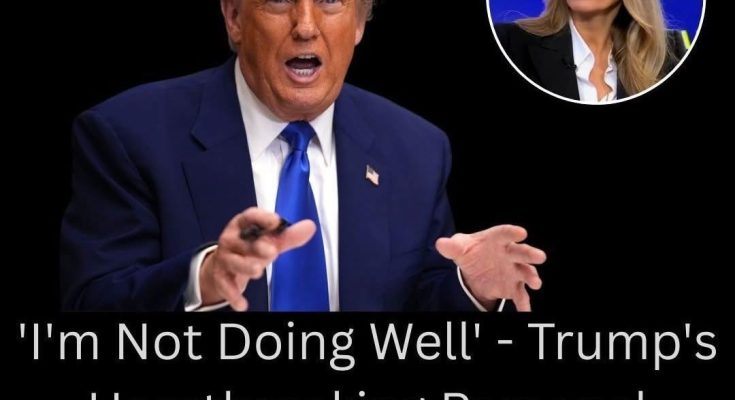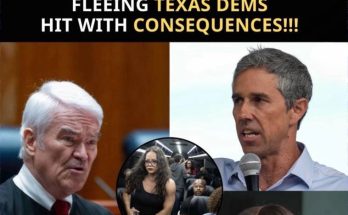In a strikingly candid moment during an interview on Fox & Friends, former President Donald Trump admitted he sometimes worries about his eternal fate, saying he fears he may not “get to Heaven.” Trump, never one to shy away from discussing his image, legacy, or faith, tied his spiritual concerns directly to his global peace efforts, suggesting that his push to end international conflicts could be his pathway to salvation.
“I’ve been told I’m at the bottom of the totem pole,” Trump said with a half-smile, reflecting on how others view his spiritual chances. “Maybe I won’t make it [to Heaven]. But if I can stop wars, if I can save lives, that may be my way in.”
The unusual remarks came just hours after a high-profile White House meeting with Ukrainian President Volodymyr Zelensky and European leaders. The discussions focused on charting a road map for peace in Ukraine, a conflict that has claimed tens of thousands of lives since Russia’s invasion in February 2022. Trump revealed that he also held direct talks with Russian President Vladimir Putin in recent days, in what sources described as the “most serious diplomatic opening in years.”
A Spiritual Dimension to Politics
While Trump has often emphasized his deal-making skills and “America First” agenda, rarely has he framed his political efforts in terms of spiritual salvation. His comments seemed to blend the political with the personal, painting a picture of a leader who not only wants to secure a lasting legacy on Earth but also fears what awaits him in the afterlife.
“Peace is the greatest thing we can achieve,” Trump told the Fox hosts. “And when you’re talking about wars, when you’re talking about people dying, it’s bigger than politics. If I can stop even one of these wars, maybe God looks at me differently.”
For many, the idea of Trump publicly doubting his entry into Heaven came as a surprise. Throughout his presidency and post-presidency, Trump has frequently aligned himself with evangelical leaders, often emphasizing his support for religious liberty and conservative social causes. Yet, his statement marked a rare acknowledgment of self-doubt and vulnerability.
The Push for Peace
Trump’s remarks came against the backdrop of significant diplomatic activity. At the White House, Ukrainian President Zelensky met with Trump and European Union leaders to discuss a framework for ending hostilities. According to officials, the meeting produced what participants described as the “most substantive progress toward peace since the start of the conflict.”
Zelensky, who has been steadfast in rallying Western support for Ukraine’s defense, struck a cautiously optimistic tone. “We have seen many promises over the years,” he said. “But today, I believe there is a genuine chance to move forward, and I welcome President Trump’s engagement on this.”
Trump revealed he had also spoken directly with Putin, signaling the potential for direct U.S.-Russia talks to complement ongoing European negotiations. While details remain scarce, Trump suggested both sides were “closer than people think” to at least discussing a cease-fire.
European leaders, often skeptical of Trump’s unorthodox diplomatic style, acknowledged the momentum. French President Emmanuel Macron described the talks as “the most movement we have seen in years,” while German Chancellor Olaf Scholz called them “a glimmer of hope.”
Linking Peace Abroad With Legacy at Home
For Trump, the intersection of faith, legacy, and global politics may become increasingly central as he positions himself for a potential return to the White House. His comments suggest he sees diplomacy not only as a political imperative but also as a moral and even spiritual calling.
“People talk about money, about power, about elections,” Trump said. “But when you’re talking about Heaven, that’s the real test. And stopping wars, saving lives — that’s about as big as it gets.”
Critics, however, were quick to question Trump’s sincerity. Some opponents argued that his remarks were calculated to appeal to religious voters as election season looms. Others pointed to his past rhetoric and policies, suggesting his record does not align with his newfound concern for peace.
Still, even skeptics acknowledged that Trump’s willingness to insert his spiritual anxieties into a discussion of global diplomacy was unusual for any U.S. leader, let alone one known for his brash confidence.
The Broader Implications
Political analysts noted that Trump’s comments could serve multiple purposes: signaling seriousness to international partners, reinforcing his appeal to religious conservatives, and reshaping his image as a statesman seeking peace rather than conflict.
“Trump has always been about image, legacy, and branding,” said political analyst Sarah Matthews. “Now he’s linking those to the ultimate legacy — what happens after death. It’s both strategic and deeply personal, and it sets him apart from the usual political script.”
Religious leaders, meanwhile, offered mixed reactions. Some evangelicals praised Trump’s willingness to discuss eternal matters openly, while others cautioned against politicizing faith.
“It’s rare to hear a political figure admit uncertainty about Heaven,” said Pastor Mark Robinson of Dallas. “But the sincerity will be judged by actions, not words. If President Trump is truly committed to peace, that’s something we should all welcome.”
A Moment of Reflection
As the interview wrapped up, Trump seemed almost contemplative, a tone rarely associated with his public persona. “I don’t know if I get there,” he said softly, referring to Heaven. “But if I can stop a war, maybe that’s my ticket. Maybe that’s how I do it.”
For a man whose career has been defined by controversy, combativeness, and an unyielding confidence in his own abilities, the admission stood out. Whether a moment of genuine self-reflection or a carefully crafted message, it underscored Trump’s effort to tie his political future — and perhaps his eternal one — to the quest for peace.


